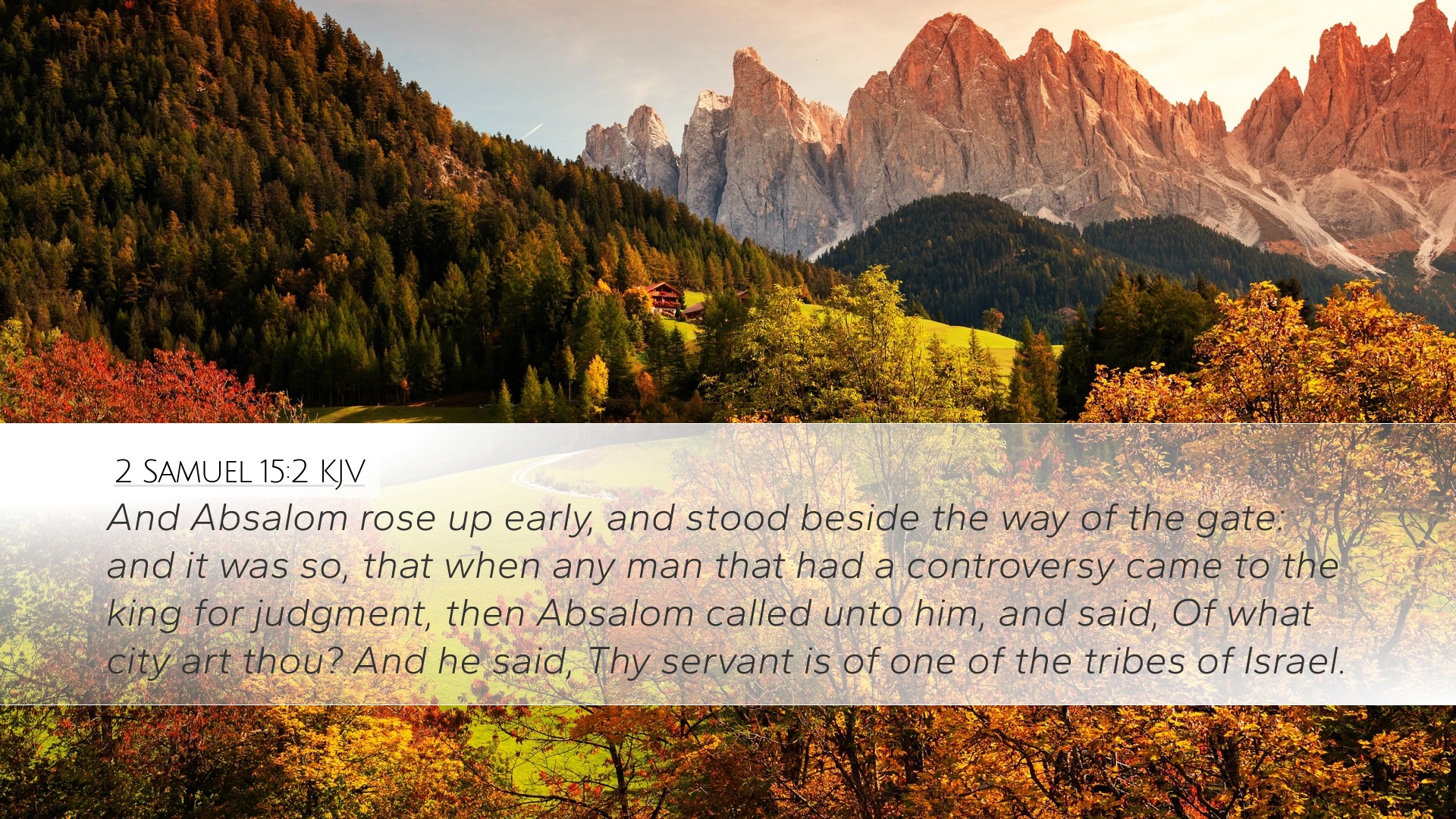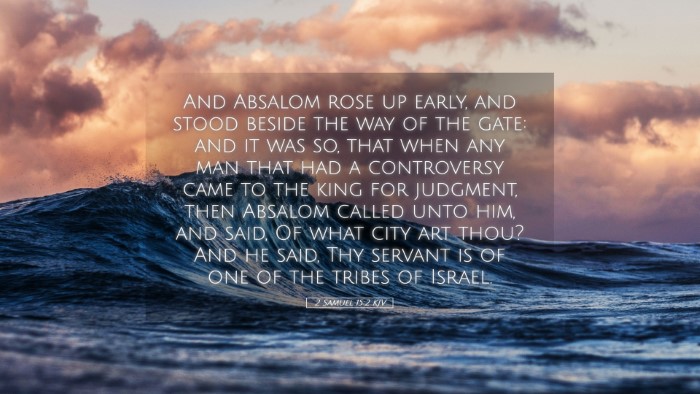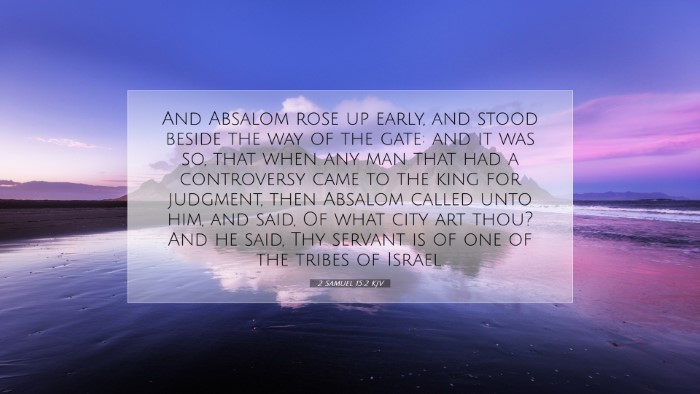Commentary on 2 Samuel 15:2
Verse: "And Absalom rose up early, and stood beside the way of the gate: and it was so, that when any man that had a controversy came to the king for judgment, then Absalom called unto him, and said, Of what city art thou? And he said, Thy servant is of one of the tribes of Israel."
Introduction
This passage describes a critical moment in the narrative of Absalom, the son of King David, as he initiates his plan to overthrow his father. The verse reflects both Absalom's cunning and the political dynamics of the time. In this analysis, we will explore various commentaries to gain deeper insights into the text.
Absalom's Ambitious Character
Matthew Henry emphasizes Absalom's political maneuvers and how his early rising signifies diligence in his scheming. Henry notes that Absalom's actions were calculative rather than spontaneous, reflecting his ambition:
- "He positioned himself at the gate, a strategic location where people gathered to seek justice."
- "His inquiry about the visitors’ cities showcases a personal engagement aimed at winning hearts."
Henry concludes that Absalom sought to create a favorable impression and establish relationships as part of his plot against David.
The Role of the Gate
Albert Barnes expounds on the significance of the gate as a central place for judicial proceedings in ancient Israel:
- "The gate served as a public assembly point where grievances were aired and justice was sought."
- "By positioning himself there, Absalom sought to undermine the king’s authority and position himself as a ruler."
Barnes suggests that the gate symbolizes a transition of power as Absalom begins to escalate his revolt, framing justice as a means to establish his own influence.
Dialogue with the People
Adam Clarke offers insights into the dialogue between Absalom and those seeking judgment:
- "Absalom’s conversation begins with a question that appears friendly and benign, aimed at creating rapport."
- "This interaction is crucial for Absalom to appear relatable to the people, fostering loyalty through personal connection."
Clarke identifies this tactical communication as a cornerstone of Absalom’s method to garner support. He portrays Absalom as a master of rhetoric, which resonated with the people's needs for recognition and justice.
Theological Insights
The theological implications of this verse encompass themes of ambition, rebellion, and divine justice. As we reflect on Absalom's character and actions, several points emerge:
- Human Ambition vs. Divine Order: Absalom's desire for power raises questions about the nature of leadership and God's sovereign design. It serves as a reminder of how personal ambitions can lead to chaos when they contradict God’s appointed order.
- The Heart's Intentions: This passage invites reflection on motives. Absalom's outward charm masked a heart filled with rebellion, prompting readers to consider the purity of their own intentions when seeking leadership or influence.
- The Cost of Rebellion: As Absalom eventually faces the consequences of his actions, this verse foreshadows the tragic outcomes of rebellion against divine authority. It serves as a cautionary tale for leaders in any capacity.
Conclusion
2 Samuel 15:2 reveals crucial insights into Absalom's character and the broader themes of ambition, politics, and justice in the scriptures. The combined perspectives of Henry, Barnes, and Clarke offer a rich tapestry of understanding for pastors, students, and theologians. It encourages the reader to reflect on their motivations and the implications of their actions within the community of faith.


